110 Years Ago, The First US Olympics Were A Disaster [PHOTOS]
In 1901, Pierre de Coubertin, considered the father of the modern Olympics, wrote to President Theodore Roosevelt, urging him to preside over games in the U.S. Originally, Chicago won the bid from the International Olympics Commission, but Roosevelt rallied for St. Louis, the host of the World's Fair that same year.
![110 Years Ago, The First US Olympics Were A Disaster [PHOTOS]](/_next/image?url=https%3A%2F%2Fstaticbiassets.in%2Fthumb%2Fmsid-35173116%2Cwidth-700%2Cheight-525%2Cimgsize-233658%2Fin-1901-pierre-de-coubertin-considered-the-father-of-the-modern-olympics-wrote-to-president-theodore-roosevelt-urging-him-to-preside-over-games-in-the-u-s-originally-chicago-won-the-bid-from-the-international-olympics-commission-but-roosevelt-rallied-for-st-louis-the-host-of-the-worlds-fair-that-same-year-.jpg&w=3840&q=75)
The 1904 World's Fair celebrated the 100th anniversary of the Louisiana Purchase. The two events became tied together, and unfortunately, the fair, with its own line-up of sporting events, overshadowed the games.
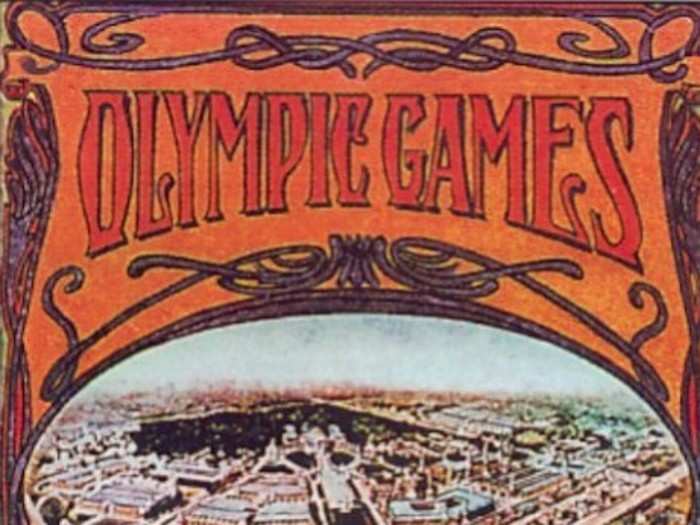
The Russo-Japanese War also put a damper on the festivities. The tensions kept many European competitors from attending.
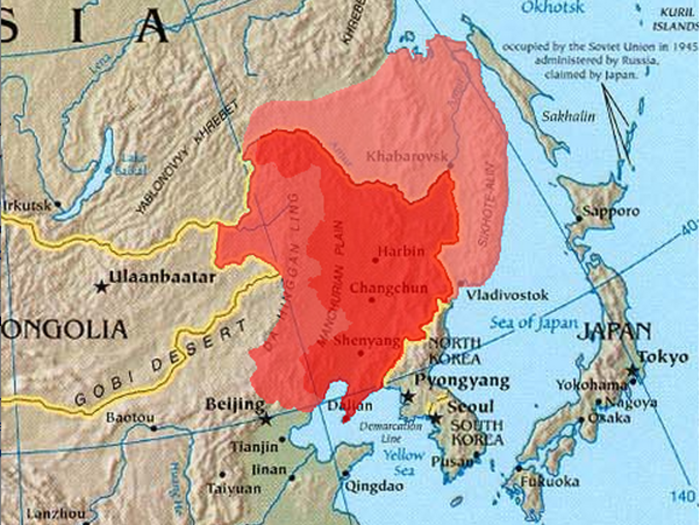
In fact, only 12 other nations competed in the 1904 Olympics. More than half the events lacked any non-American competitors. The other nations, shown below by the number of competitors for each country, included: Australia, Austria, Canada, Cuba, France, Germany, Great Britain, Greece, Hungary, Norway, South Africa, and Switzerland. Today, over 200 countries usually compete.
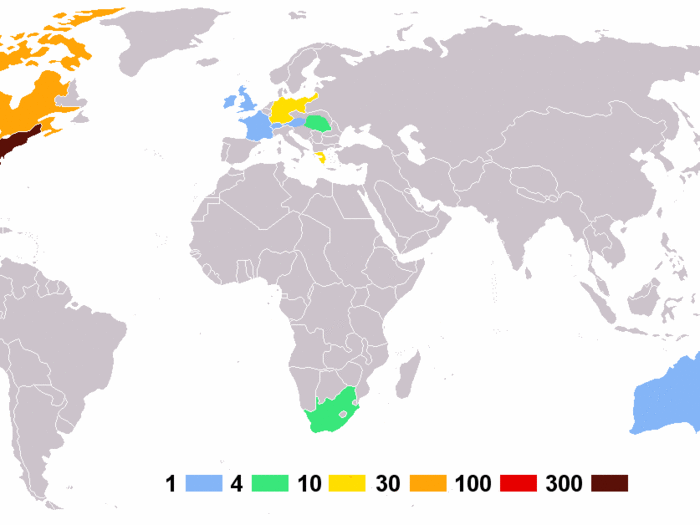
Sources: Olympic Games Museum, Slate
Even with so few competitors, people questioned the nationalities of medal-winners, many of whom were recent immigrants. For example, American swimmer Francis Gailey traveled to the U.S. shortly before the Olympics and joined the San Francisco Olympic club. He won four medals. But historians recently confirmed Gailey was an Australian citizen at the time. In all, nine athletes had their nationalities amended in recent years.
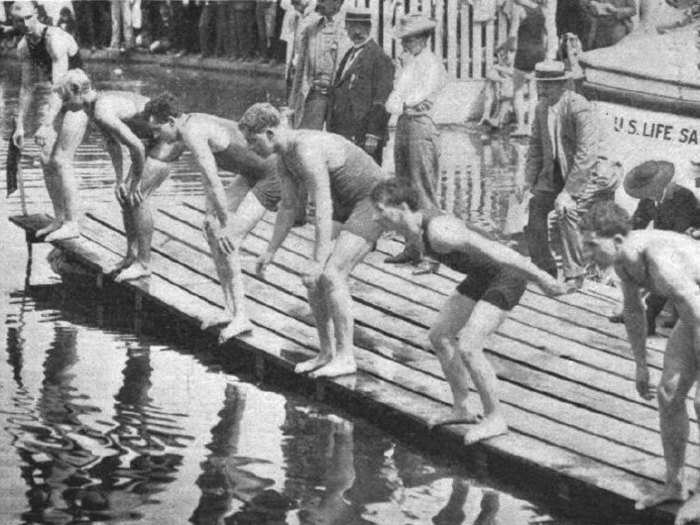
Source: Australian Olympic Committee
The competitors also wore uniforms from their athletic clubs — instead of countries — like the members of the New York Athletic Club's swim team, shown below. Rivalries even existed between certain clubs within the U.S.
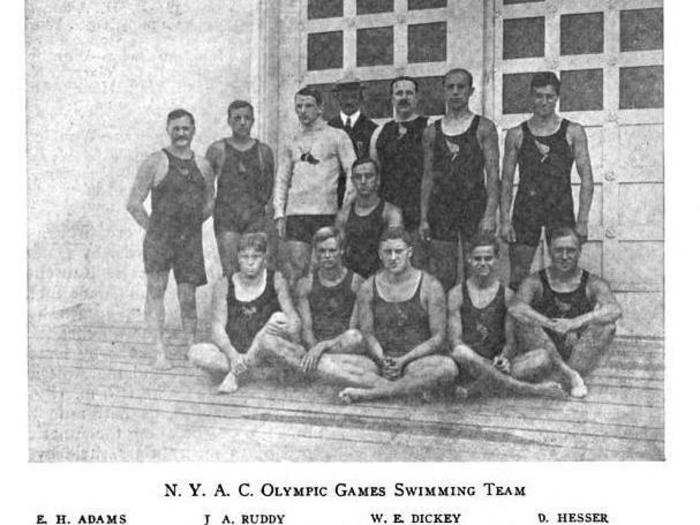
One nice touch was that the winners of the 1904 Olympics received gold medals. In the two previous Olympics, first and second place winners received silver and bronze medals, respectively.
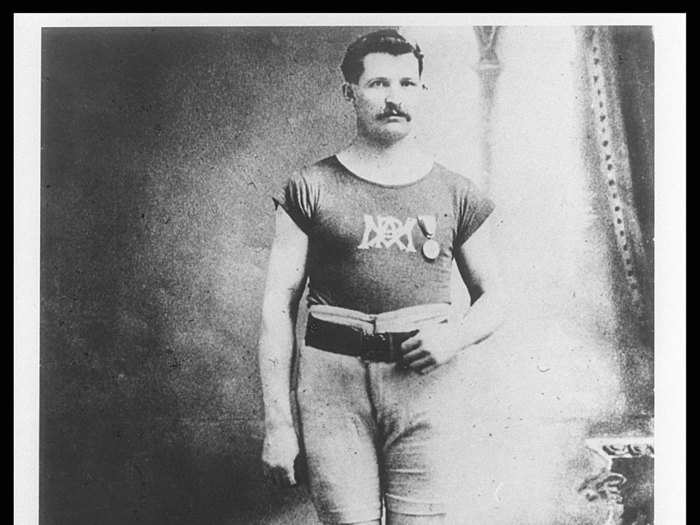
Source: BBC America
The Olympics that year also featured some events no longer held. These games were first and last to include the All-Around Dumbbell Contest. American Frederick Winters, shown struggling here, took the silver medal, losing to fellow American Oscar Paul Osthoff.
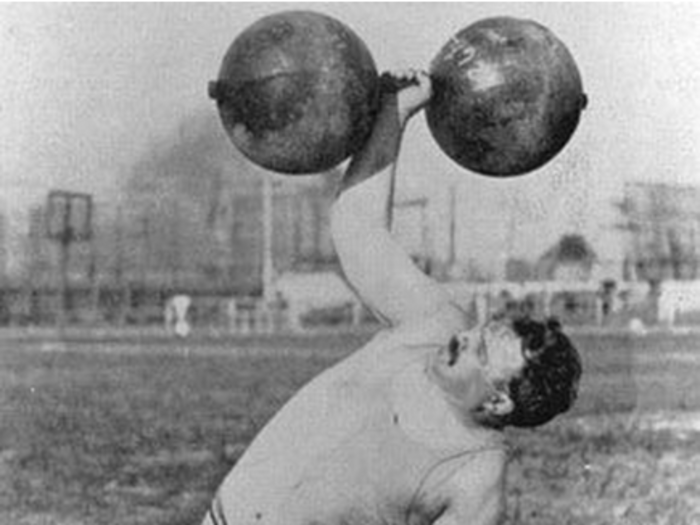
Source: National Public Radio
The 1904 Olympics was the last time golf was featured, too. Americans won the team golf event that year, but Canadian George Lyon, shown here, received the gold medal in the individual event. After competitors around the world pushed for the sport's return, the 2016 Summer Olympics in Rio de Janeiro will include golf again.

Source: Olympic.org
Tug-of-war, shown below, also stopped after the 1920 Olympics. American teammates representing the Milwaukee Athletic Club championed the event.
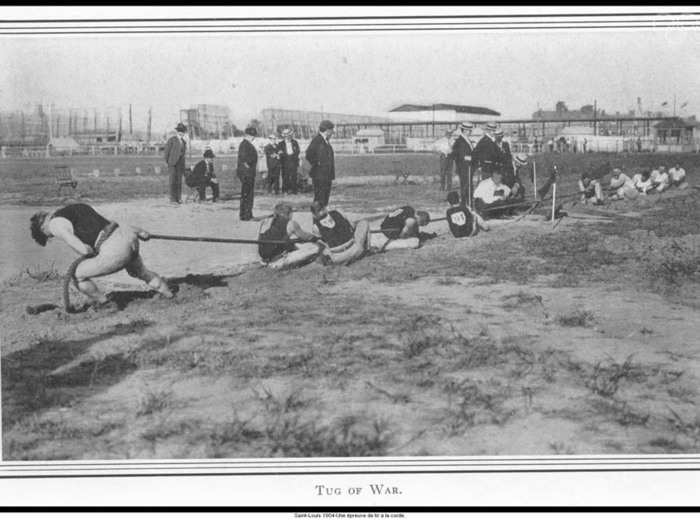
Source: Olympic.org
The games also featured basketball, now a major staple, as only a "demonstration sport" to promote it for future implementation. The 1903 Buffalo Germans, shown below, won the title the next year at the Olympics.
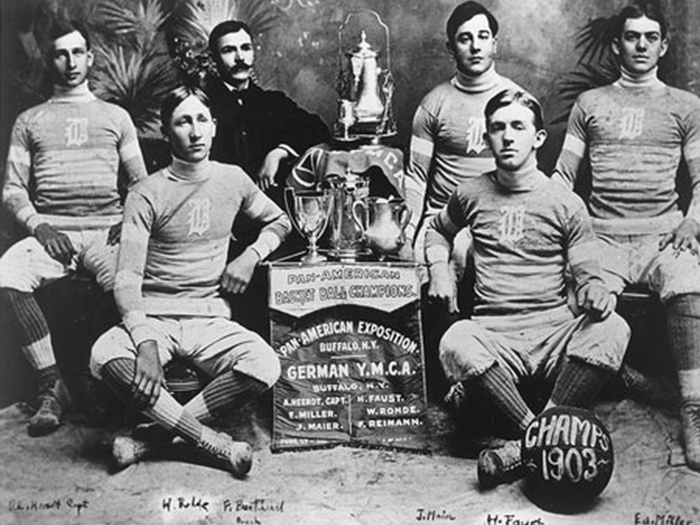
Source: Forbes, Olympic.org, Basketball Hall of Fame
In a misguided and racist showing, Olympics and World's Fair organizers collaborated to recruiter various indigenous peoples to compete against their white counterparts in a separate two-day event within the Olympic Games, called "Anthropology Days." It featured traditional Olympic events along with strange competitions like tree-climbing and mud throwing — contests thought more suitable for cultures deemed primitive and inferior by organizers.

Sources: Slate, Saint Louis Public Library
But the strangest event, by far, was the marathon, which began in the photo below.
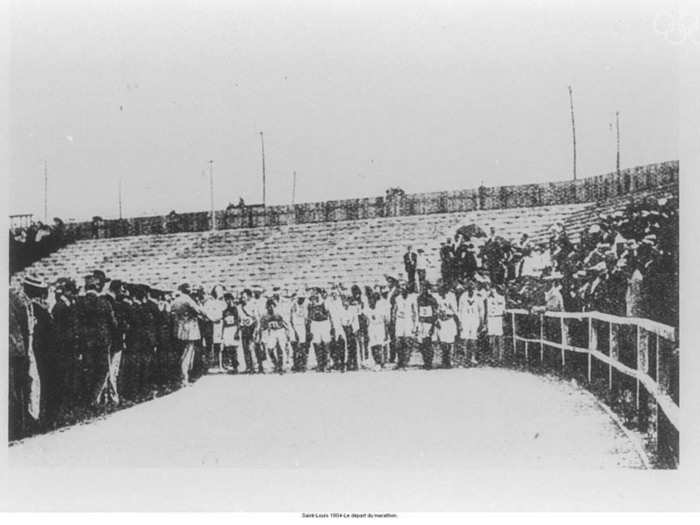
To start, the first to cross the finish line, a known prankster named Fred Lorz, stopped running nine minutes in and drove part of the way. Yes, in a car. When officials realized, they immediately disqualified him, bumping up the next competitor to the winning slot.
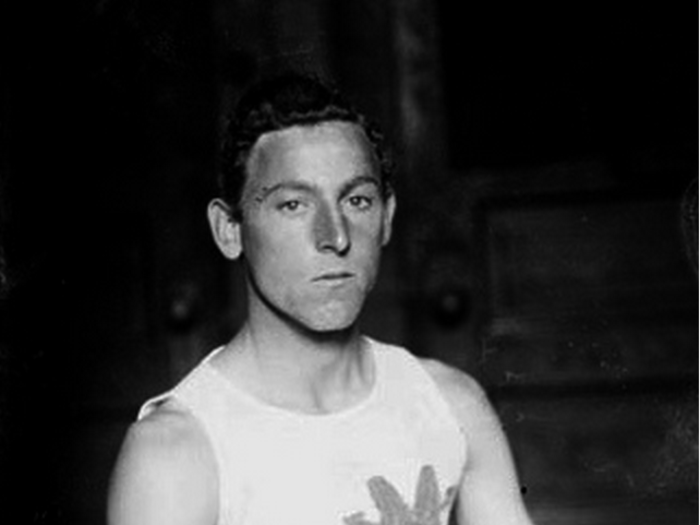
Source: Los Angeles Times
Thomas Hicks, the official winner, would have also faced disqualification had he competed today. He nearly died from shooting up his era's version of steroids to boost his performance.
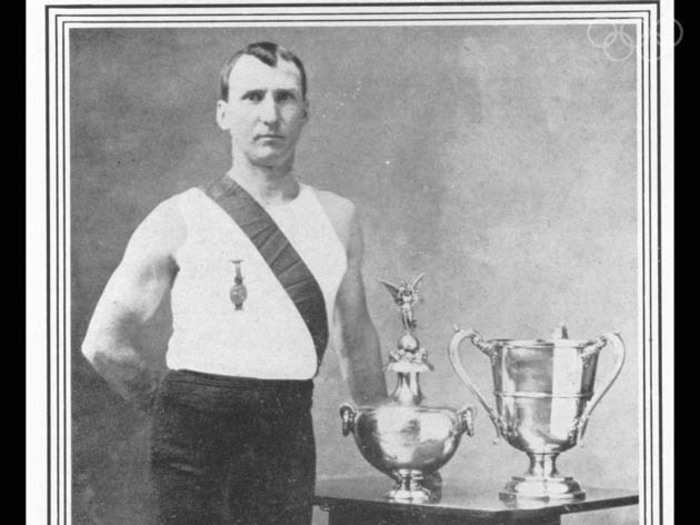
Source: Los Angeles Times
Around the 19th mile, one of Hicks' supporters on the sidelines gave him a dose of Strychnine, commonly used a rat poison as well as a nervous system stimulant, inside a raw egg. After Lorz finished, Hicks thought he'd lost, but his supporters encouraged him, giving him some more drugs — and brandy.
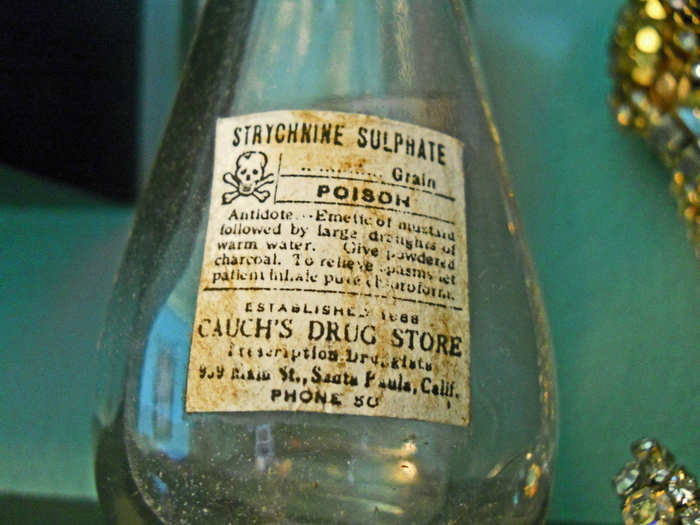
Source: Los Angeles Times
He finished the marathon in the slowest time ever recorded. By the end, his fans (the same ones who gave him the drugs) had to support his weight.
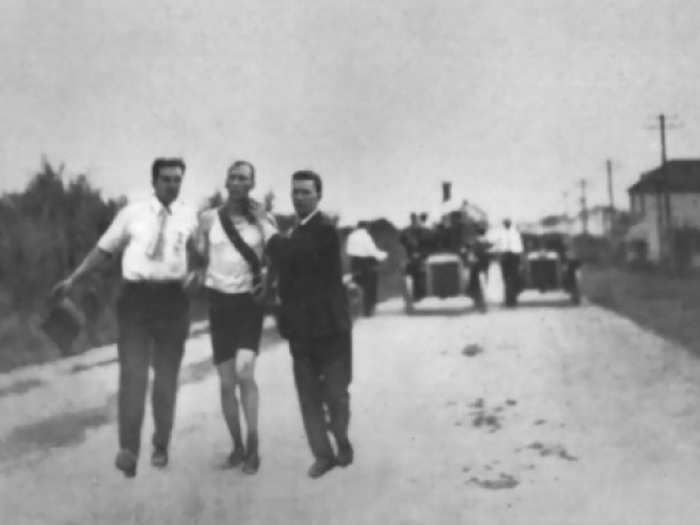
And yet, another competitor, Andarin Carvajal, probably would have won the event had he not taken a break midway. The Cuban competitor begged for money to fund his trip to the U.S. for the Olympics. He ran in dress clothes and shoes — and finished fourth overall.
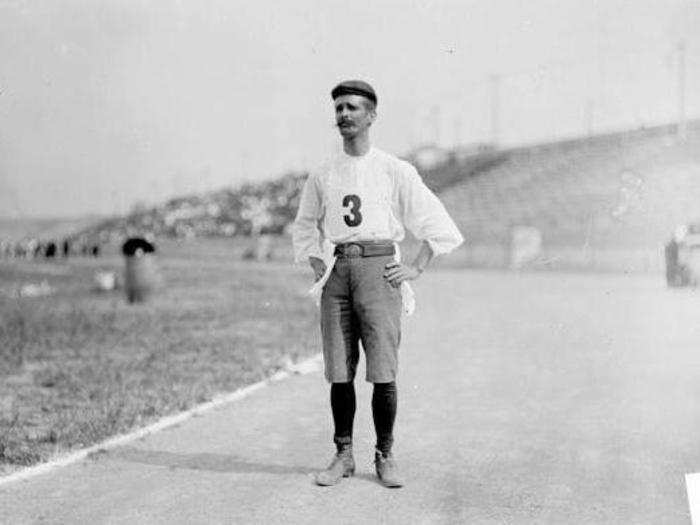
Source: Los Angeles Times
Only 18 of the 32 runners actually finished the race. Dust kicked up by automobiles, intense heat, and a lack of water stations contributed to deadly conditions. An American, William Garcia, was almost the first casualty.
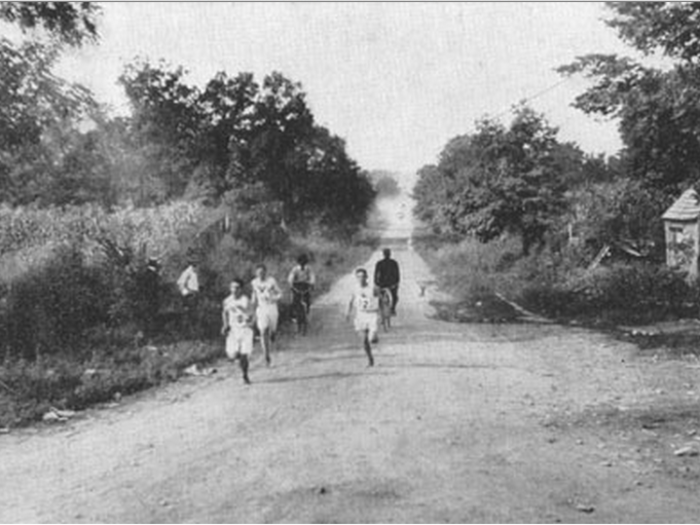
Source: Sports Reference
The first African-Americans to ever compete in an Olympics also ran the marathon. They actually came to the U.S. as part of an exhibit about Africa at the World's Fair but ended up entering the games. One of them, Len Tau, might have won the race if dogs hadn't aggressively chased him off course for a few miles.
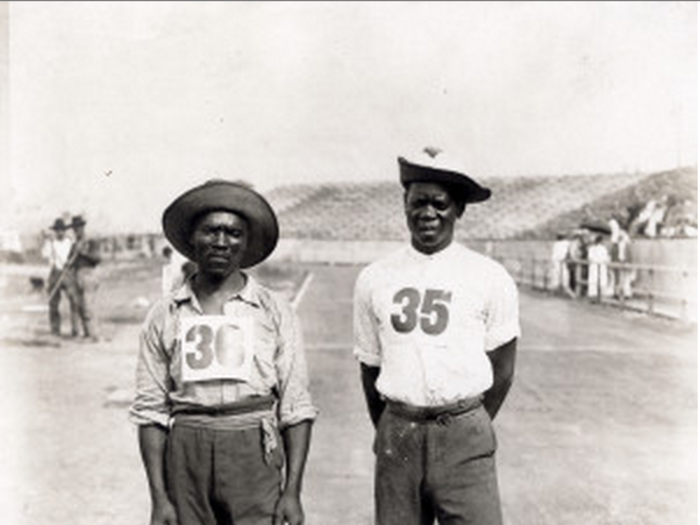
Source: Los Angeles Times
Most consider the marathon — and the entire Olympics games — a complete disaster. But at least the spectators enjoyed themselves.
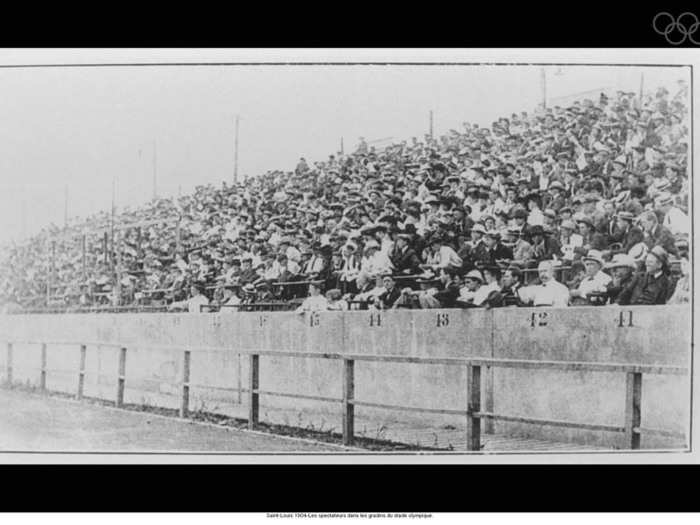
By these standards, Russia's Olympics this year were a huge success.

Popular Right Now
Popular Keywords
Advertisement